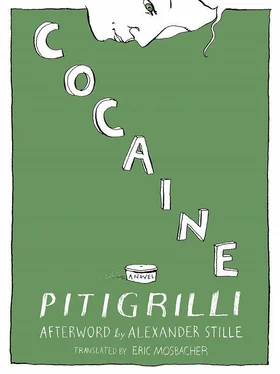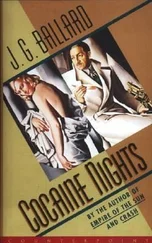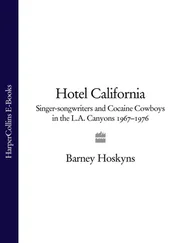That, I believe, is the point at which the novel ought not to end, but to begin. And since we have finished with chapter 5 and our heroine (who is the Italian and not the Armenian lady) has not yet appeared, let us now introduce her once and for all.
Maud, male impersonator — she danced in tails and a top hat — arrived in Paris with eight trunks and a small red dog.
She wore a light gray suit, decorated at the wrists with monkey skin, as soft and flowing as Leonardo da Vinci’s beard. She went straight to the Hotel Napoléon, because Tito not only met her at the station but booked two rooms and a bathroom for her at his hotel.
Some stuffed dogs are perfect imitations of live dogs, but Maud’s was a perfect imitation of a stuffed one; when you stroked it there was a risk that one of its hairs might stick in your finger. Its eyes, concealed beneath a fringe, were a Darwinian demonstration of the futility of using them when one is always on a lead subject to another’s will. It was a small dog, almost pocket size and attractively stupid. By careful examination it was possible to discover which end was the head and which the tail. It was a personification of la beauté de la laideur.
“What’s its name?” Tito asked.
Maud rounded her scarlet lips (they looked like half a cherry without a stone) and let forth a prolonged whistle approximating to the note of G.
“That’s its name.”
“It’s a lovely one.”
She had also brought from Italy a lady’s maid highly skilled in doing her hair and looking after her clothes and dealing with male visitors. When she felt like it she answered to the name of Pierina.
Never having been to Paris before, she was thrilled by everything she saw. Maud, her mistress, had also never been to Paris before, but she was not thrilled by anything.
Tito immediately saw in her an embryonic international, intercontinental, transoceanic adventuress capable of acclimatization to males of all races.
He no longer recognized her as the Maddalena he had known two years previously, the decent girl who attended a corrupt secretarial college. In this elegant and electromagnetic creature he failed to see any trace of the respectable bourgeois girl who lived in a fourth floor flat with a balcony facing the courtyard. All this was so obvious that it seems hardly necessary to mention it. All great actresses, dancers, courtesans come from a fourth floor flat, and research into their past would reveal salads for their physical nourishment, the novels of Ponson du Terrail for their intellectual nourishment and a zinc hip-bath for the cleansing of a body worthy of a Phidias or a Canova and predestined to princely love and imperial desire. Just as every alehouse scullery boy is a possible future owner of a grand hotel, so every girl who waters the flowers and looks after the canary in a fourth floor flat is a potential Otero or Cléo de Mérode.
Tito tactfully refrained from inquiring about her parents. He recalled her highly respectable mama who, fixing her intrepid gaze on her from above her formidable bosom, gave her rapid courses of lecture on morality; and her highly respectable papa, who (when he had any money) still counted it in scudi and marenghi and brandished his hundred-year-old pocket watch like a sword whenever his daughter came home a few minutes late.
He remembered the flat, poor but honest, and rich in those ornamental objects that are put into circulation by charitable lotteries and pass from household to household until they find a home like Maddalena’s and stay there. But on the day when Maddalena becomes Maud they go to another charitable lottery.
So Tito and Maud could not abandon themselves to wallowing in old memories, which is a kind of mnemonic masturbation. To Tito Maud was merely a creature in whom he noted some points of contact with a rather ugly, rather stupid girl whom he had met on a balcony two years before.
Now she wore kangaroo gloves and used difficult words like idiosyncrasy, eurhythmics and quadrilateral and spoke them with pedantic accuracy.
Maud talked and laughed about Maddalena as if she were an old friend of whom she had lost sight. Her confessable past now began with the day on which — or rather with the first time she —
“It happened like this,” she explained to Tito while the maid unpacked her luggage in the next room. “It happened like this,” she said, looking at the Vendôme column surmounted by a bronze Napoleon while Tito leaned against the window with his back to the square. “It was a summer’s day, and I was at home alone. My mother had let a room to a bank clerk, and it was hot, and I felt desires that gave me a kind of tingling in the blood. We were alone in the flat, and my mama had the key; she might have come in at any moment. The young man started kissing me, then he pushed me up against the door and took me standing like that, quite quietly, just as one might transfix a butterfly stupefied by the sun.”
“But did you like the young man? Did you love him?”
“No,” Maud replied, looking at the porphyry Vendôme column vibrating in the sun like transparent liquid. “No. At that moment I just wanted someone. I didn’t even know who he was; I didn’t like him, but he was a man. I wanted someone, and he had what was necessary to satisfy me. When my parents heard about it there was a terrible row. I’ve never understood why. Just because at that moment — it was August, after all — I wanted a man. I had to put up with my mother’s screams and my father’s insults and the curses of both of them.”
“And the man?”
“I never saw him again. Before giving myself to him I had refused two or three men who were in love with me.”
“That’s what you women always do. You reject men who love you only to give yourself one day to someone who doesn’t deserve you.”
“Deserve? What has that to do with it? I’ve never given myself to anyone, we women never give ourselves to anyone as a reward, in recognition of his deserts. We give ourselves because we need to give ourselves.”
“Signorina,” the lady’s maid called out from the next room. “In the big trunk there’s a —”
“Excuse me,” said Maud, detaching herself from Tito.
He leaned on the windowsill with his face between his elbows and his fingers intertwined at the back of his neck, watching, without moving his head, the cars entering the big gray square by the Rue de la Paix and leaving it by the Rue Castiglione, making the noise on the asphalt that scissors make when cutting silk.
What an intelligent woman, he said to himself. With what purity and simplicity she described to me how it happened that first time. It was hot, there was a man available, she was excited, she wanted him, she gave herself to him without making a noise, without pretending. Other women say: The man was a coward, I was a child, I knew nothing, I understood nothing, he took advantage of me. Or: He gave me something to drink, I don’t know what, and I went to sleep. When I woke up… Or they say: My mother was dying, we had no money for medicine, for the doctor, even for a coffin; so I gave myself to a rich man… And they say: Oh, if only I’d known, oh, the revulsion, the hatred I feel for that man and the loathing I feel for myself.
Instead (Tito went on to himself) this delicious Maud talks about the first time as she would about her first communion, if that were worth talking about. She attaches no importance to that physical episode, that superficial incident, that harmless, simple, quiet event about which poets, moralists, judges at all times and in all ages have made such a fuss. That minor act of nervous release that had led to savage injustices and idiotic philosophical outpourings in the name of morality; that natural interplay of two bodies that appears so different depending on whether it happens before or after a carriage ride to the town hall, and is considered decent and honorable if it is done in one bed and wicked if it is done in another.
Читать дальше



